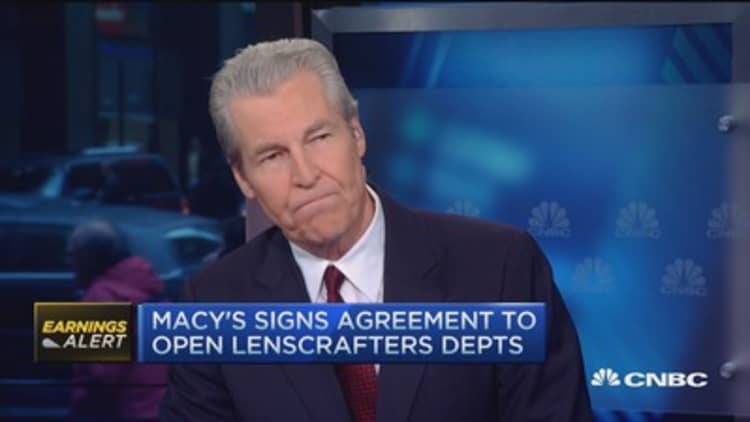Ever the optimists, millennials are approaching the holiday season with more vigor than older shoppers — putting them squarely at the top of many retailers' wish lists.
According to a survey by PricewaterhouseCoopers (PWC), 47 percent of millennials said they plan to spend more this holiday season, compared to just 25 percent of shoppers ages 35 and older.
They're also disproportionately driving the shift toward digital sales growth. According to Nielsen, 21 percent of millennials indicated they will spend more online than they did last year, compared to just 15 percent of Generation Xers and 10 percent of Baby Boomers.
But they aren't just using their cash to stock up on everyday jeans or T-shirts. A recent report by the Shullman Research Center found that millennials — which it defines as consumers 18 to 33 years old — will account for 57 percent of all luxury shoppers this season. That's despite the fact that they make up less than one-third of the U.S. adult population.
So what's behind the cohort's souped-up spending plans? According to James Russo, senior vice president of global insights at Nielsen, there are two major factors at play.
For one, despite the tough labor market many millennials entered when they graduated college, younger consumers have a historical tendency to be the most optimistic. But perhaps more significantly, as the group starts to age, climb the corporate ladder and begin having children of their own, they have more people on whom to spend.
"They're entering into a different life stage," Russo said. "That's a big component of the holiday season."
'Everything they want'
Nielsen's research found that millennials plan to increase their spending on toys this holiday, making them one of the top three categories on which millennials plan to spend more. (Gift cards topped the list, followed by technology.)
Shullman reported similar findings among luxury millennial shoppers, with gift cards once again topping the group's shopping lists. They were followed by personal electronics, toys and jewelry.
While on the surface these spending patterns fall in line with those of older shoppers, millennials are characteristically adding their own twist. Farla Efros, president of HRC Advisory, said they're particularly keen on "unique and differentiated products," including things that are handmade or have a vintage feel. That could influence them to shop at independent or small boutiques.
On the flip side, Efros said that Irish fast-fashion retailer Primark, which recently opened its first store in the U.S., is "kind of like the millennials' dream," as it gets a new flow of low-price merchandise every day.
"It's giving them everything they want," she said.
That's in part because although millennials have more confidence than their older counterparts, they continue to be focused on value. Joe Jackman, CEO of Jackman Reinvents, emphasized that doesn't always mean having the best price.
Millennials, like many older consumers, want to feel like they're getting a good return on their shopping investment, Jackman said. That's why affordable luxury brands resonate so well with the cohort. They're willing to spend on the things they really want — evidenced by the fact that they'll pair a $1,000 Chanel handbag with a $10 H&M T-shirt.
But millennial consumers aren't just spending on tangible items. According to PWC, the group will spend just 48 percent of its budget on gifts, earmarking 31 percent to travel and 21 percent for entertainment. That compares to 61 percent of shoppers ages 35 and older who plan to spend on gifts, and will use just 39 of their budget on travel and entertainment combined.

Millennials also plan to spend nearly twice as much of their overall holiday budget on themselves as older shoppers. Because the cohort spans such a wide age group — a person's spending habits at 18 are decidedly different than they are at 34 — this tends to skew more toward the younger millennial base, which hasn't yet started a family.
It's worth noting that while millennials will be spending more this year, they still plan to purchase far less than older shoppers. Whereas millennials plan to spend on average $834 this year, shoppers ages 35 and older will spend $1,097, according to PWC.




